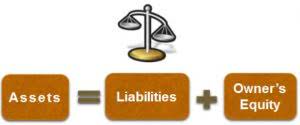
Each type serves a specific purpose, such as preparing financial statements or supporting internal decision-making. The entire purpose of accounting is to provide useful information to end-users. Not that we have financial information, the journal entries, we have to present them in a way that makes sense to investors, creditors, and anyone else who is looking to make decisions about the company. The accounting process culminates in the creation of the general purpose financial statements. These reports communicate the ledger account financial position of a company to decision makers and end-users.

Taxation Compliance (TC)
However, not all business owners have the time or means to pursue formal training. Students sometimes enter accounting programs with little technical knowledge. This guide serves as an easy-to-use resource for developing the vocabulary used by accounting professionals. They can also be held liable under statutory law by state or federal securities regulatory bodies.

Definition of Accounting
- Accounting Information System (AIS) is related to the collection, development, deployment, implementation, and monitoring of the accounting procedures and systems that are used in the accounting process.
- In the latter part of the fifteenth century, there was an increase in use of Pacioli’s work on accounting because of increased trade, and the necessity of merchants to record transactions.
- Additionally, accountancy involves the analysis of financial activity using accounting data.
- Importantly, it also covers relevant etymologies and word histories in cases where knowledge of these elements can help you better understand the term.
Another option is the certified management accountant (CMA) designation, which is targeted at improving the management accounting and financial accounting skills of accountants. The Certified Internal Auditor (CIA) designation is intended for those who work on auditing tasks within a business. For a small business, accounting involves tracking money flow in various forms, including operating expenses (e.g., marketing, utilities, rent), cost of goods sold, accounts receivable and sales. It also takes into account liabilities, such as accounts payable, business loans and taxes, and the value of your assets, such as cash and inventory.
Characteristics of Accounting:
The United Kingdom saw the emergence of accountants as an organized profession in the 19th century. Local professional bodies in England merged to form the Institute of Chartered Accountants in England and Wales in 1880. We decide how much to spend on marketing, R&D, and reinvesting profits after examining the company’s accounts. Accountancy is an information science we use to gather, classify, and manipulate financial information. Not only companies, but also individuals, charities, and many other entities are familiar with accountancy.
Why do we need financial information?
For example, an Accounts Receivable ledger might include detailed records for each customer, tracking outstanding invoices, payments, and credit terms. This level of detail is invaluable for managing cash flow, monitoring customer relationships, and ensuring timely collections. For instance, consider a company purchasing equipment for $10,000 using cash. The transaction involves a debit to the Equipment account (an asset) and a credit to the Cash account (also an asset). This ensures that the increase in one asset is offset by a corresponding decrease in another, keeping the accounting equation balanced. For instance, an income statement showing declining profit margins might prompt management to investigate cost-saving measures or reconsider pricing strategies.
The Ethical Dimension of Accounting
Furthermore, both the income and expenses are recorded in the statement of activities. It also involves calculating the income tax and other taxes of the business. In ancient times, accountants were viewed as solicitors that offered accounting services to their clients. However, in the mid-19th century, the Institute of Accountants in Glasgow petitioned Queen Victoria for a royal charter. The ancient accounting systems, while foundationally strong, did not provide a solution for the modern structures of corporations.
Forensic Accounting

Classes include broad categories such as cash and cash equivalents, equities, commodities, real estate, and intellectual property, among others. Beyond basic accountancy accounting terms, this resource also explains alternative word uses and defines related or adjacent concepts. Importantly, it also covers relevant etymologies and word histories in cases where knowledge of these elements can help you better understand the term.

The professionals who lead these efforts possess deep, detailed technical proficiencies often developed through a bachelor’s degree program in accounting. https://www.bookstime.com/ Accountants work with companies, governments, and non-profits, or set up private practices. The accounting process provides financial data for a broad range of individuals whose objectives in studying the data vary widely. Bank officials, for example, may study a company’s financial statements to evaluate the company’s ability to repay a loan.
Accountants
Prospective investors may compare accounting data from several companies to decide which company represents the best investment. Accounting also supplies management with significant financial data useful for decision making. In the nineteenth century, the industrial revolution, and in the twentieth century the two world wars, revised the form of accounting and reporting to the forms still in use till date.

